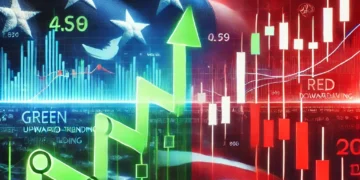Choosing Between Stocks and Forex: A Comprehensive Guide to Trading
Introduction
Investors often grapple with the decision of where to allocate their capital, particularly between the stock market and the foreign exchange (forex) market. Both markets offer unique opportunities and challenges, attracting different types of traders based on their goals, risk tolerance, and the trading strategies they employ. This article aims to provide a thorough comparison of trading in the stock market versus the forex market, exploring the distinctive features of each to help you decide which might be more suitable for your trading objectives. We will delve into the benefits and potential drawbacks of each market, ensuring you have a well-rounded view to make an informed decision.
Understanding Stock Trading
The stock market is vast, offering a range of companies from various sectors for potential investment. When you buy stocks, you are essentially purchasing a share of ownership in a company, making you a shareholder entitled to dividends and voting rights, depending on the type of stock. This market is highly regulated, which can provide a sense of security for investors.
Pros of Stock Trading:
- Ownership and Dividends: Stocks provide ownership in a company, with potential dividends as a passive income source.
- Regulation and Transparency: The stock market is well-regulated, offering a higher degree of investor protection and transparency.
Cons of Stock Trading:
- Market Hours Limitation: Unlike forex, the stock market has limited trading hours, restricting trading opportunities to specific times.
- Volatility: Individual stocks can be highly volatile, influenced by company performance and market conditions.
Understanding Forex Trading
Forex trading involves the exchange of one currency for another and is the most liquid market in the world. It operates 24 hours a day during weekdays, offering flexibility to trade at any time. Forex trading requires understanding various factors that influence currency values, including economic indicators, interest rates, and global geopolitical events.
Pros of Forex Trading:
- High Liquidity and Volume: The forex market’s high liquidity means trades can be executed quickly and without large price deviations.
- Market Availability: Available 24 hours from Monday to Friday, forex offers the flexibility to trade at any time, accommodating various trading styles.
Cons of Forex Trading:
- Complexity: The forex market’s complexity requires a robust understanding of global economies and their interconnectedness.
- Leverage Risks: While leverage can increase potential profits, it also amplifies potential losses, making it risky for inexperienced traders.
Choosing What to Trade
Choosing between stocks and forex depends largely on your investment strategy, risk tolerance, and market knowledge. If you are interested in long-term investments and enjoy researching individual companies, the stock market may be more suitable. Conversely, if you prefer fast-paced trading, can commit the time to understand macroeconomic variables, and are comfortable with the risks associated with high leverage, forex might be the right choice.
Conclusion
Both the stock and forex markets offer distinct advantages and challenges, and the choice between them should align with your financial goals, trading style, and risk tolerance. It’s important to educate yourself thoroughly about the mechanics of each market and possibly even try trading both with small amounts or through simulated trading scenarios to determine which market suits you best. As with any investment, it’s crucial to approach trading with a well-thought-out plan and a clear understanding of the potential risks and rewards. Whether you choose stocks, forex, or a combination of both, the key to success is continuous learning and adaptability to market conditions.
























